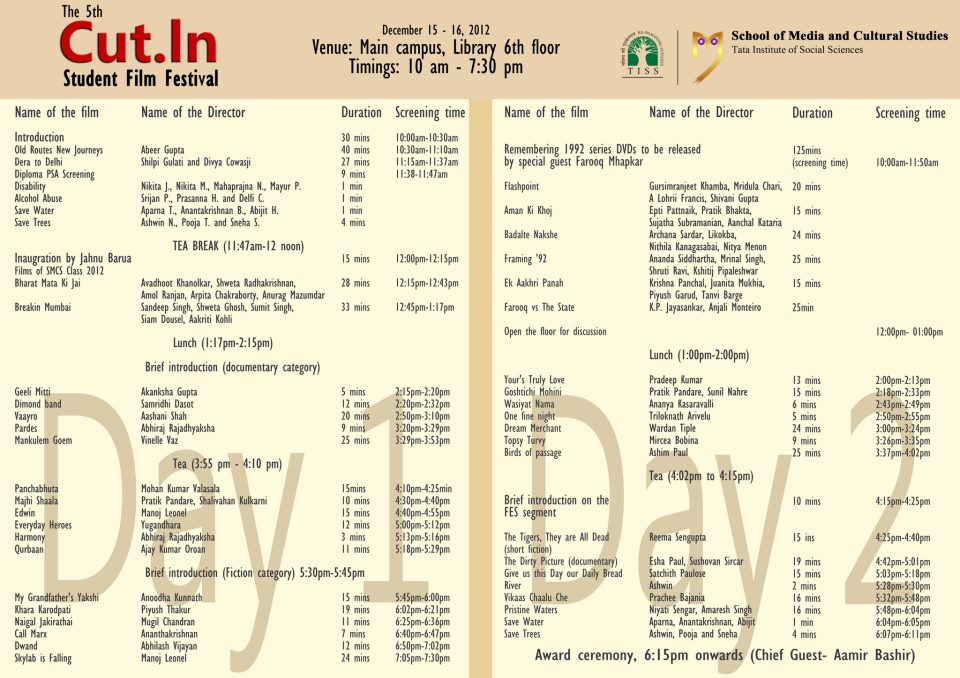A documentary film Vikas Chaalu Chhe based on the poor of Maninagar, Khokhra and Behrampura affected by the Rs. 10 entry pass collected by Ahmedabad Municipal Corporation (AMC) for the development of Kankaria lake, won two awards at the Tata Institute of Social Sciences (TISS)-hosted ‘Cut In’ film festival in Mumbai — a silver (first runner up) in documentary section and a gold (winner) in the editing section.

Directed by National Institute of Design (NID) student Prachee Bajania, the film depicts how the Kankaria Lake Front Development project has affected the neighborhood people- people who came in for their early morning jog, laborers who ended up here after a hard day’s work, lovers who wanted to enjoy same privacy, children who tossed their balls at Balvatika etc. With the cleaning and beautification of the lake followed a gate, which only opened for entry passes worth Rs. 10, making it harder for the people to carry out their traditional leisure routines near the lake as before. The jury cited that the well-researched film truthfully fronts the issues of commercializing public places as part of a political agenda.
A documentary film Vikas Chaalu Chhe based on the poor of Maninagar, Khokhra and Behrampura affected by the Rs. 10 entry pass collected by Ahmedabad Municipal Corporation (AMC) for the development of Kankaria lake, won two awards at the Tata Institute of Social Sciences (TISS)-hosted ‘Cut In’ film festival in Mumbai — a silver (first runner up) in documentary section and a gold (winner) in the editing section.
Directed by National Institute of Design (NID) student Prachee Bajania, the film depicts how the Kankaria Lake Front Development project has affected the neighborhood people- people who came in for their early morning jog, laborers who ended up here after a hard day’s work, lovers who wanted to enjoy same privacy, children who tossed their balls at Balvatika etc. With the cleaning and beautification of the lake followed a gate, which only opened for entry passes worth Rs. 10, making it harder for the people to carry out their traditional leisure routines near the lake as before. The jury cited that the well-researched film truthfully fronts the issues of commercializing public places as part of a political agenda.